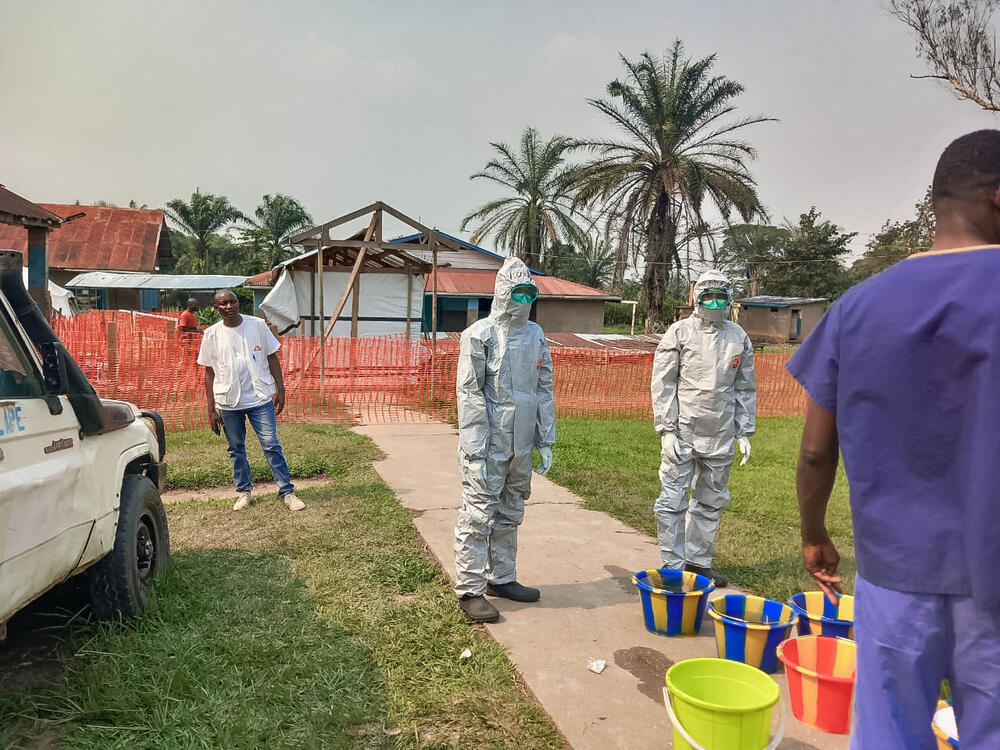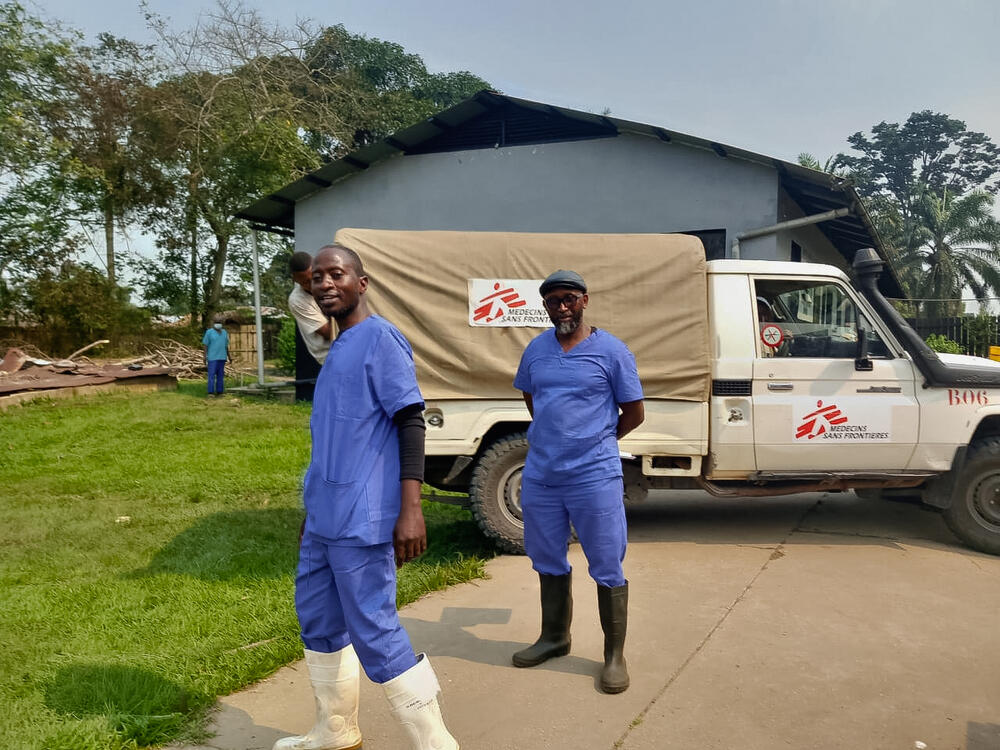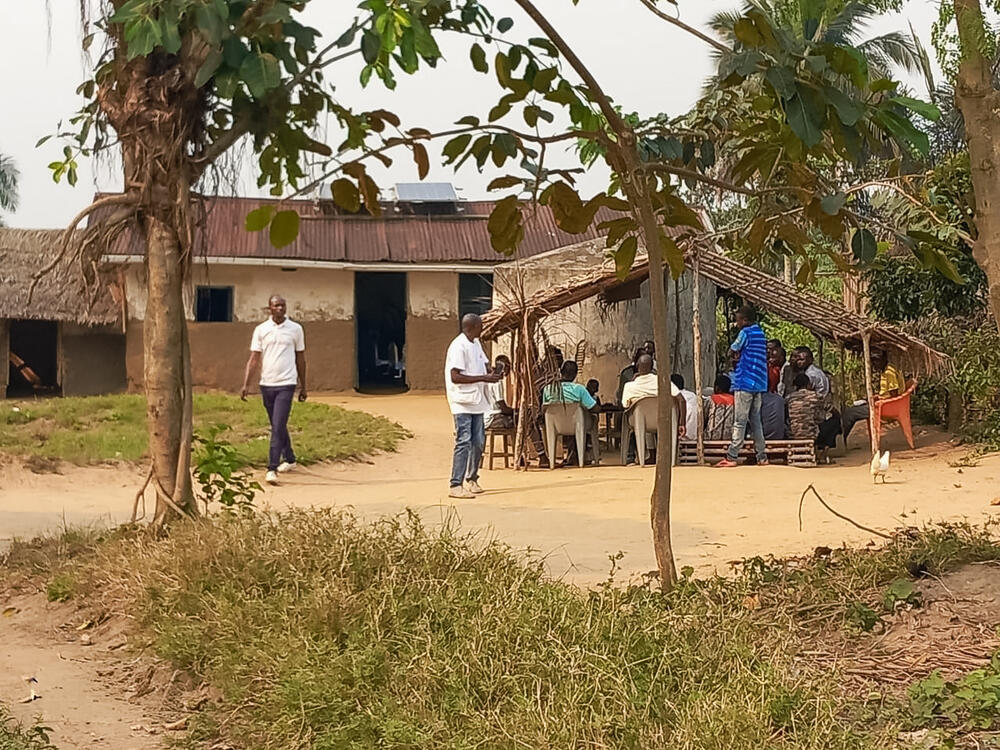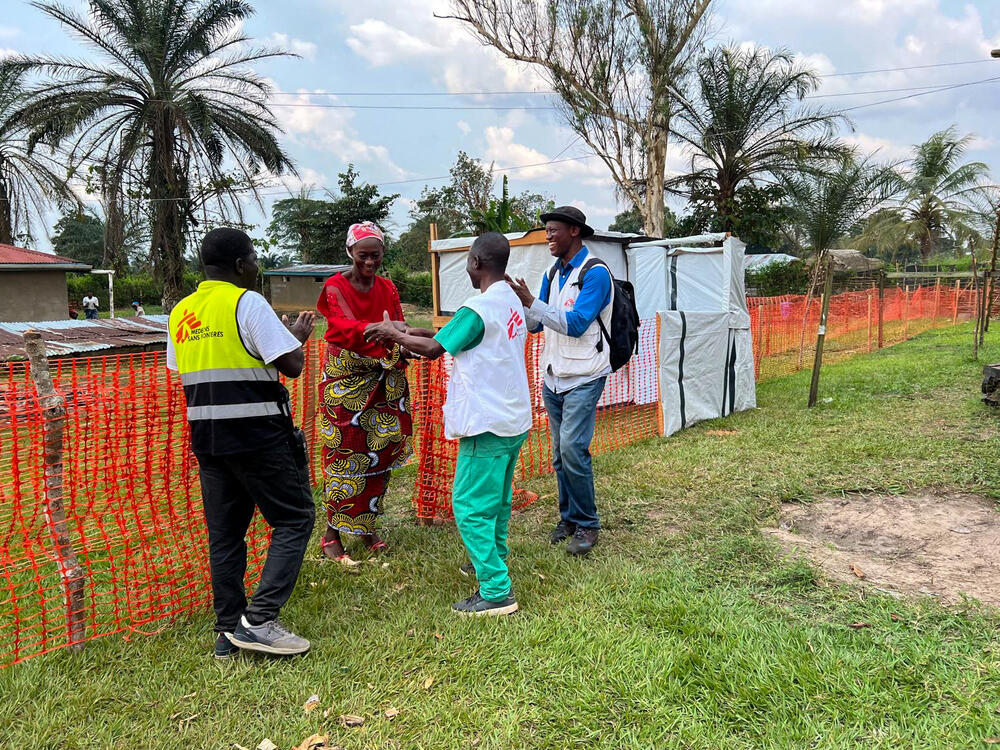DRC Ebola outbreak: MSF teams mobilise to treat patients
Médecins Sans Frontières / Doctors Without Borders (MSF) has joined other agencies to respond to a new Ebola outbreak in Democratic Republic of Congo (DRC) which has already resulted in 16 deaths.
Our teams have mobilised to access the remote region in Kasaï province, helping to set up an Ebola Treatment Centre, supplying essential medicines and training staff in infection prevention protocols.
On 4 September, DRC officials declared a new outbreak of Ebola, Zaire strain, in Bulape Health Zone, part of Mweka territory in Kasaï province.
This remote region in south-central DRC is difficult to access, with poor road conditions, no cargo airport, and limited electricity—factors that are severely complicating the response.
As of 9 September, national health authorities reported more than 20 confirmed cases and 16 deaths. Several health workers are among the victims. This marks the 16th Ebola outbreak in DRC since the virus was first identified in the country in 1976.
A rapid and coordinated response
MSF rapidly mobilised teams and joined a multi-agency emergency response along with the Congolese Ministry of Health (MoH) and the World Health Organization (WHO).
“Our teams began supporting the General Referral Hospital in Bulape almost immediately,” says Brice de le Vingne, MSF emergency coordinator.
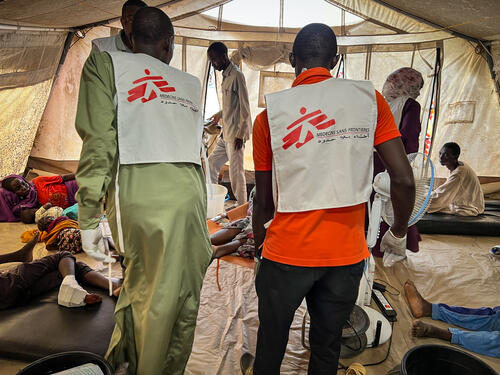
Our work saves lives
“We helped reinforce triage protocols, supplied essential medicines and personal protective equipment, and conducted training in infection prevention and control and symptomatic care.”
An Ebola Treatment Centre has been established by MSF and WHO within the hospital compound, and yesterday, the facility began admitting its first patients. MoH, MSF and WHO teams are jointly providing care.
What is Ebola?
Ebola is a highly infectious virus that can kill up to 90 percent of the people who catch it. It is so infectious that patients need to be treated in isolation by staff wearing strict protective equipment and clothing. MSF led the international humanitarian response to the 2014 West Africa epidemic - the worst outbreak in history.
In addition, MSF teams have visited surrounding health facilities to strengthen infection prevention protocols and train healthcare workers in how to respond safely and effectively to suspected Ebola cases.
“Currently, a dozen MSF staff are present in Bulape, and we are sending in more people and tons of medical materials,” says de le Vingne.
“We’re working hand in hand with Congolese health authorities to evaluate needs on the ground and determine where our support might also be required—such as in surveillance, community engagement, or vaccination.”
Vaccines and treatment
The WHO has confirmed that 2,000 Ebola vaccine doses are currently available in the DRC, with additional shipments expected in the coming days. MSF stands ready to support vaccination efforts if requested by health authorities.
“This outbreak is a reminder of the threat posed by Ebola in the DRC,” says Hilde De Clerck, MSF infectious diseases specialist.
“Fortunately, progress in recent years has led to improved treatments, but this haemorrhagic fever can still be fatal for most infected patients without timely and appropriate care. Ensuring access to both treatment and vaccines is essential.”
Ebola is transmitted to humans through direct contact with blood, secretions, organs, or other bodily fluids of infected animals. Human-to-human transmission occurs through close contact with the bodily fluids of infected individuals, particularly via mucous membranes such as the mouth or nose.
This is not the first time Mweka territory has faced an Ebola outbreak—MSF also supported responses to previous outbreaks in the area in 2007 and 2008.
Update 16 September: First patients discharged
The first patients who recovered from Ebola have now been discharged from the temporary Ebola Treatment Center (ETC) we established in Bulape. Thanks to our joint care efforts, we successfully stopped the high mortality rate that occurred at Bulape Hospital during the early days of the outbreak.
A lot of work and dedication is still required to successfully manage the outbreak and ensure every patient receives appropriate treatment.
MSF in Democratic Republic of Congo
Democratic Republic of Congo (DRC) has endured decades of multiple overlapping crises and severe limitations in medical capacity.
In 2023, as violence escalated in eastern DRC, displacing record numbers of civilians, Médecins Sans Frontières / Doctors Without Borders (MSF) increased activities to respond to the growing humanitarian needs.
